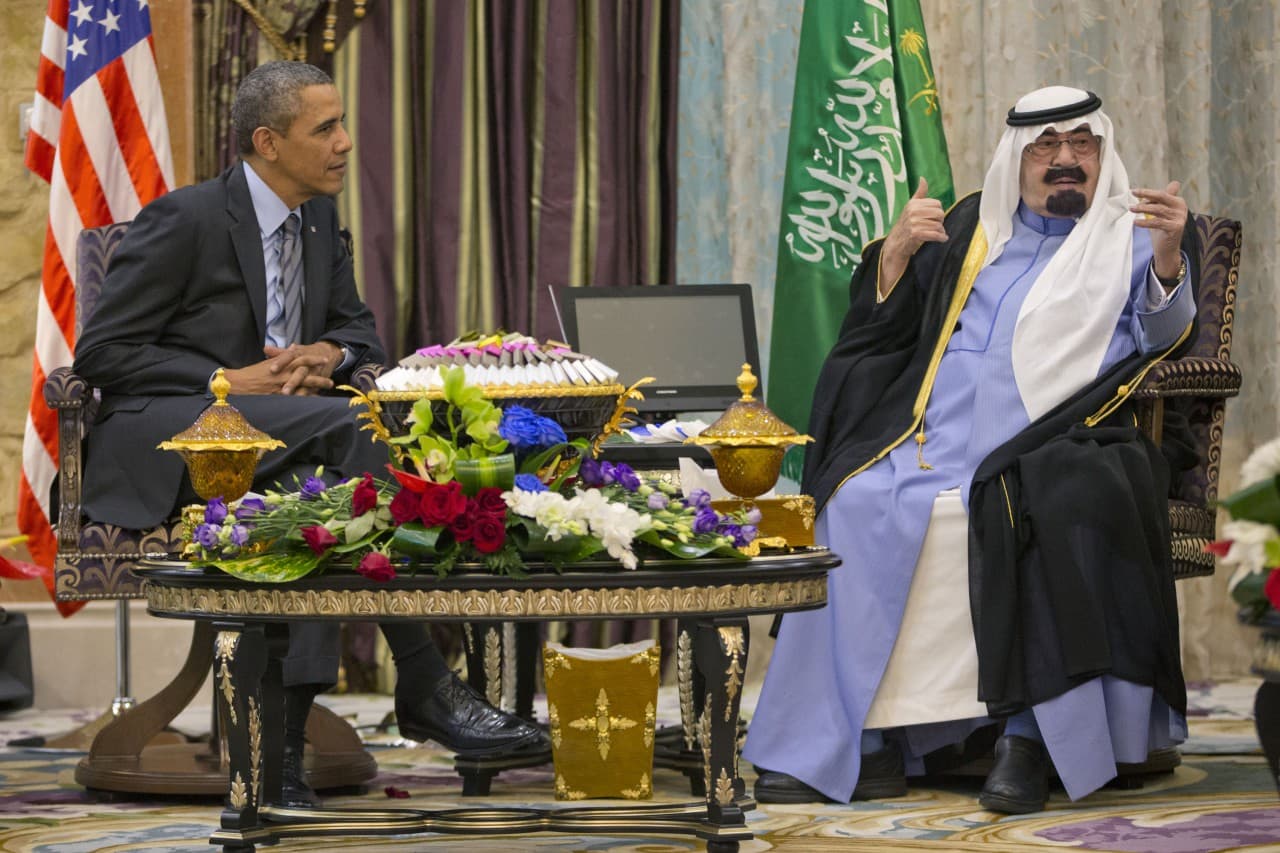Advertisement
The U.S., Saudi Arabia And The New Middle East
ResumeThe United States and Saudi Arabia — longtime allies now divided on some big issues. We look at how they’re both engaging with a reshaped Middle East.

For almost 70 years, since F.D.R. famously met with Ibn Saud on his way home from Crimea near the end of World War II, the United States and Saudi Arabia have been bone-deep allies. The Saudis had the oil. The US had the military power. There were issues. Big ones. Israel. Oil embargo. 9/11 and Islamism. But oil and power attracted one another. They still do. But the Middle East is changing. Riyadh and Washington are at odds on Syria, on Egypt, on Iran, more. Maybe even on energy. This hour On Point: the President visits Riyadh, and the Saudi-US divide.
-- Tom Ashbrook
Guests
Gregory Gause, professor of political science at the University of Vermont. Non-resident senior fellow at the Brookings Doha Center. "The International Relations of the Persian Gulf."
Michael Crowley, chief foreign affairs correspondent for TIME Magazine. (@CrowleyTIME)
Shadi Hamid, fellow of the Project on U.S. Relations with the Islamic World at the Brookings Institution's Saban Center for Middle East Policy. Author of the forthcoming "Temptations of Power: Islamists and Illiberal Democracy In a New Middle East." (@shadihamid)
From Tom's Reading List
USA Today: Obama looks to win back Saudi confidence — "The relationship between the two nations began to fray three years ago when protests against longtime Egyptian leader Hosni Mubarak swelled, and Obama turned against him, experts said. Now, Saudi leaders are worried about Obama's outreach to Iran as Washington seeks to reach a deal over its nuclear program, analysts said. And the Saudis believe the U.S. is not doing enough to help those fighting against President Bashar al-Assad in Syria."
New York Times: America’s Role in Riyadh — "Like their government, many ordinary Saudis are baffled by what they perceive as incompetent United States policies. Most remain notably pro-American and, ever polite, apologize before averring their lost faith in America’s leader, variously described in as 'feckless' and 'addicted to wrong decision-making.'"
TIME: Middle East Matters Most to Obama–Not Putin --"Although Putin is dangerous and nuclear terrorism is an extremely serious threat, neither one sits at the very top of his foreign policy agenda. For a clue towards what occupies the president most, look no farther than his visit Friday with the king of Saudi Arabia. Even after Putin’s thuggish annexation of Crimea, it’s not Russia and Europe that matter most to Obama’s agenda. It’s the Middle East. Let us count the ways." (You can also read Crowley's piece, "The King and O," here.)
POLITICO Reporter Carrie Budoff Brown's Viral Photos From The President's Saudi Arabian Visit
This program aired on April 1, 2014.